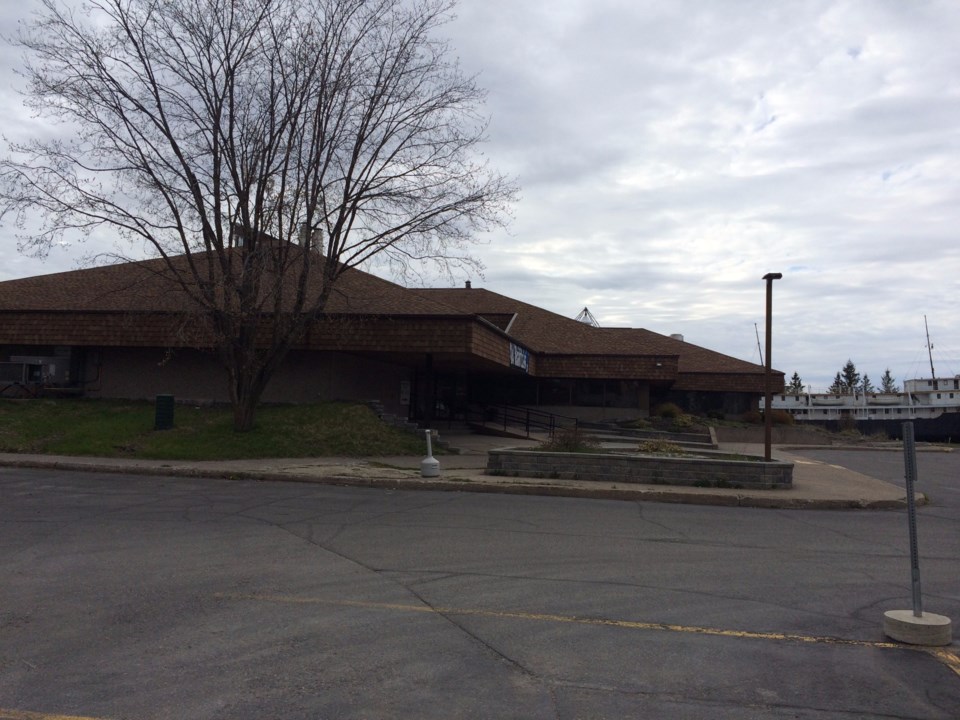From the archives of the Sault Ste. Marie Public Library:
*************************
Remember This…Algo Club - “No Women Allowed”
Men in Sault Ste. Marie in the early twentieth century wanted to have the prestige of having a private club.
Like most private clubs of this era, membership was restricted to wealthier men only.
Built in 1900, the original men’s club was located at 639 Bay Street in John Martin Stephen’s home. It was sold to the Sault Business Club in 1907.
At that time the clubhouse contained a smoking room, billiard room, small bar and dining room on the first floor. The boardroom and card room were located on the second floor. Two tennis courts were added around 1928, which were said to be the finest north of Toronto.
However, the Businessmen’s Club went bankrupt during the Great Depression.
Two local individuals tried to save it but the Bankruptcy Trustees would only accept a cash sale for the amount of $6,600.
A group of men from the Tin Mill approached the plant manager T.H. Rahilly about purchasing the club. Mr. Rahilly in turn spoke to Sir James Dunn who was the President of Algoma Steel at the time.
The decision to purchase the club was made in only three and a half hours! However a stipulation was made that the name be changed to the Algoma Steel Men’s Club in an acknowledgment to the new owners.
This transaction was finalized in April of 1940.
By 1974, it was decided that the club needed a new home and a building was constructed on the banks of the St. Marys River.
This was part of the city’s waterfront development program and the Algo Club officially opened in May of 1975.
It was designed by architect, Perry Short and cost $780,000 to construct. It was designed with a high cathedral ceiling in order to open up the space.
Norm MacIntosh, President of the Algo Club wanted “to open up as much space as possible with the smallest building possible.”
The first floor housed the meeting rooms, dining room and dance floor. The second floor contained the recreational facilities which included an exercise room and sauna. The manager also lived on the premises in a two bedroom apartment on the second floor. Tennis courts were added in June of 1975.
At this point membership of the club was approximately 400 men with the majority of the membership comprised of Algoma Steel managers and businessmen from the downtown community.
When asked in 1975 if women were permitted to join since more women held executive positions, MacIntosh stated “No… this is strictly a men’s club.”
Women were permitted on the property at 4:00 pm and only when accompanied by a member. It would not be until the early 1980s that women were finally granted membership.
In 1987, Algoma Steel sold the Algo Club to its members. At this time the steel plant was trying to convert some of their assets into cash in order to pay off their corporate debt.
In May of 1991, 12 investors purchased the Algo Club from the membership. Jack Rickaby stated that in order to maintain the financial stability of the club, membership restrictions might be lifted.
Up to this point anyone connected to occupations that were unionized were excluded, including teachers, nurses and law enforcement officers.
The new investors wanted to promote the club as a downtown attraction. The membership of the Algo Club now totalled 1,200 individuals.
Unfortunately this business model was short lived. In late 1995, the Algo Club would shut its doors permanently.
Dining and club operations ceased in September and banquets stopped in October. One of the owners said that the shutdown was a result of a poor local economy and conceded that private clubs were a thing of the past.
In early 1994 the dining room had been opened to the general public. Many of the original members felt that opening up the dining room to the public alienated the club members and left them feeling that it wasn’t worth keeping up their membership.
Though the times of private clubs in Sault Ste. Marie may have passed, the building at 89 Foster Drive has transitioned to become a community restaurant in recent years. Docks Riverfront Grill and HD Sports Grill have called this same building home and have capitalized on the spectacular waterfront view available for their customers.
*************************
Each week, the Sault Ste. Marie Public Library and its Archives provides SooToday readers with a glimpse of the city’s past.
Find out more of what the Public Library has to offer at www.ssmpl.ca and look for more Remember This? columns here
